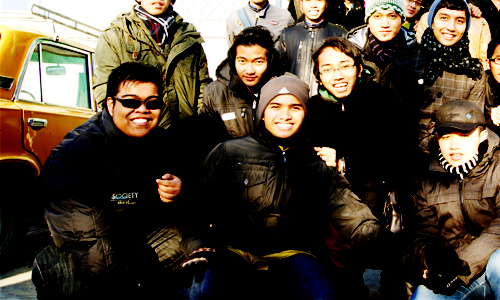Exam preparation: 10 study tips
1 1. Give yourself enough time to
study
“Too much homework, no time studying”,
“Lectures are just wasting my time”,
“If
this stupid class is abolished I’d have more time to read”,
“This education system is a failure”
“That lecturer taught nothing. I’m
wondering how they hired her in the first place”
These are the excuses that you give when
you flunked your biology or any subjects in the exam. “Rogov, no wonder I got
this”. Blame nobody but yourself! Of course sometimes it wouldn’t be applicable
to all situation(as you know we live by the bias education system here) but reflection to yourself comes first. Ask
yourself “Have I prepared enough? Have I answered well?”, if you have a thought
like ‘hmmm..’, ‘I think so’, ‘I’m not sure’ then it’s NO! You didn’t study
enough as you love to PROCRASTINATE. Bang! Everybody does this, don’t try to
deny.
So, don't leave it until the last minute.
While some students do seem to thrive on last-minute 'cramming', it's widely
accepted that for most of us, this is not the best way to approach an exam. But
we might say ‘Excuse me, all this while I survived by doing so, what’s the
problem?. Sometimes last-minute studying is good and pertinent for several
students but sure enough it is not the last-minute that you have not even
started the first chapter of anatomy. You might have only like several topics
or have gone through all the questions but just have to revise once again, then
it’d be fine. But if you have the exam final tomorrow and only today you start
opening the anatomy book, you’d better change.
Set
out a timetable for your study. Write down how many exams you have and the days
on which you have to sit them. Then organize your study accordingly. You may
want to give some exams more study time than others (pharmacology is harder
than topan, more time for pharmaco). So find a balance that you feel
comfortable with.
2. Organize your study space
Make sure you have enough space to spread
your textbooks and notes out. Your study table is not the place for you to put
on everything, there you have unwashed dishes, snacks, joysticks, dirty
laundry, cats or whatever things. Seriously? Your life is a complete mess. Put
in order all the books, use the book stand, if you don’t have it arrange them
in a neat pile. Have you got enough light? Is your chair comfortable? Is your
DOTA out of sight? Definitely it should be.
 Try and get rid of all distractions, and
make sure you feel as comfortable and able to focus as possible. For some
people, this may mean almost complete silence; for others, background music
helps. Some of us need everything completely tidy and organized in order to
concentrate, while others thrive in a more cluttered environment(only weird
people do this). Think about what works
for you, and take the time to get it right.
Try and get rid of all distractions, and
make sure you feel as comfortable and able to focus as possible. For some
people, this may mean almost complete silence; for others, background music
helps. Some of us need everything completely tidy and organized in order to
concentrate, while others thrive in a more cluttered environment(only weird
people do this). Think about what works
for you, and take the time to get it right.
3. Use flow charts and diagrams
 Visual aids can be really helpful when
revising. At the start of a topic, challenge yourself to write down everything
you already know about a topic - and then highlight where the gaps lie. Closer
to the exam, condense your revision notes into one-page diagrams.( don’t get
wrong, it’s not for you to bring it in the exam). Getting your ideas down in
this brief format can then help you to quickly recall everything you need to
know during the exam. But some people are just not good enough to make brief
notes in the form of diagrams or mind maps or bubbly cloudy short notes out of
the thousands pages of physiology book. So it depends on which ways you’d like
to use to summarise what you have read.
Visual aids can be really helpful when
revising. At the start of a topic, challenge yourself to write down everything
you already know about a topic - and then highlight where the gaps lie. Closer
to the exam, condense your revision notes into one-page diagrams.( don’t get
wrong, it’s not for you to bring it in the exam). Getting your ideas down in
this brief format can then help you to quickly recall everything you need to
know during the exam. But some people are just not good enough to make brief
notes in the form of diagrams or mind maps or bubbly cloudy short notes out of
the thousands pages of physiology book. So it depends on which ways you’d like
to use to summarise what you have read.
4. Practice on old exams
One of the most effective ways to prepare
for exams is to practice taking past versions. This helps you get used to the
format of the questions. HAHAHAHA! What a joke! As for all of you, you have
been given the questions and the answer scheme in the early beginning of your
course. It’s leaked years back then and the questions are just recycled year to
year. Therefore, supposedly you have no reasons not to score with flying
colours in your final semester. Yeah right! Easier said than done! :p
5. Explain your answers to others
 Parents and little brothers and sisters
don't have to be annoying around exam time, but in your case as you are studying
abroad your friends or roommates are. Use them to your advantage. Explain an
answer to a question to them even though they do not ask you to but who cares?
Somehow it’s for their own benefit too, they get to prepare at least (but if
they say stop, just stop, you don’t want to be annoying then). That will help you to get it clear in
your head, and also to highlight any areas where you need more work. As this old genius man once said;
Parents and little brothers and sisters
don't have to be annoying around exam time, but in your case as you are studying
abroad your friends or roommates are. Use them to your advantage. Explain an
answer to a question to them even though they do not ask you to but who cares?
Somehow it’s for their own benefit too, they get to prepare at least (but if
they say stop, just stop, you don’t want to be annoying then). That will help you to get it clear in
your head, and also to highlight any areas where you need more work. As this old genius man once said;
“If you can't explain it simply, you don't
understand it well enough”- Albert Einstein-
6. DO NOT Organize study groups with
friends
Some, not some but most of the motivators,
teachers or whoever so called educator might suggest organise study groups for
better learning process. Crap! Usually the biggest problem of having a study
group is, it is not discussing about study anymore, in just 10 minutes or earlier
than that it turns out to be chit chat gossip girl group. All topics from
how-do-you-get-this-dress until my-cat-is-so-cute topic which come from nowhere
being discussed. The point is, usually (among Malays frequently, not trying to
be racist here) it doesn’t work out the
way it supposed to be. But, of course there’s BUT, it doesn’t always to be that
way. Some people need to learn by listening to others as there are certain
people with better understanding on certain subjects. Thus, study group would help
in this case. If you want to organise a study group make sure it doesn’t exceed
more than 5 people or else it’d become what has been mentioned above, the best would
be 3. Get together with friends for a
study session. You may have questions that they have the answers to and vice
versa. As long as you make sure you stay focused on the topic for an agreed
amount of time, this can be one of the most effective ways to challenge
yourself.
7. Take regular breaks
While you may think it's best to study for
as many hours as possible, this can actually be counterproductive. If you were
training for a marathon, you wouldn't try and run 24 hours a day! Likewise
studies have shown that for long-term retention of knowledge, taking regular
breaks really helps.
Everyone's different, so develop a study
routine that works for you. If you study better in the morning, start early
before taking a break at lunchtime. Or if you're more productive at nighttime,
take a larger break earlier on so you're ready to settle down come evening.
Try not to feel guilty about being out
enjoying the sunshine instead of hunched over your textbooks. Remember Vitamin
D is important for a healthy brain!
Bear in mind! Having a little break in the
middle of your studying can be a larger break if you misuse it. You plan to
take 5 minutes but it drags you to 5 hours. This happens if you use the break
time by watching videos, playing computer games or anything that you’ve known
already it doesn’t require you couples of minutes but it costs you hours.
8. Snack on 'brain food'
 Keep away from junk food! You may feel like
you deserve a treat, or that you don't have time to cook, but what you eat can
really have an impact on energy levels and focus. The same applies on exam day
- eat a good meal before the test, based on foods that will provide a slow
release of energy throughout. Sugar may seem appealing, but it won't help when
your energy levels crash an hour or so later. When you are studying, avoid
heavy meals. You don’t want to have double chicken burger with cheesy wedges
and a large cup of fizzy drinks during your time studying. It causes you to be
sleepy. Keep your body and brain well-fuelled by choosing nutritious foods that
have been proven to aid concentration and memory, such as fish, nuts, seeds,
yogurt and blueberries.
Keep away from junk food! You may feel like
you deserve a treat, or that you don't have time to cook, but what you eat can
really have an impact on energy levels and focus. The same applies on exam day
- eat a good meal before the test, based on foods that will provide a slow
release of energy throughout. Sugar may seem appealing, but it won't help when
your energy levels crash an hour or so later. When you are studying, avoid
heavy meals. You don’t want to have double chicken burger with cheesy wedges
and a large cup of fizzy drinks during your time studying. It causes you to be
sleepy. Keep your body and brain well-fuelled by choosing nutritious foods that
have been proven to aid concentration and memory, such as fish, nuts, seeds,
yogurt and blueberries.
9. Plan your exam day
Make sure you get everything ready well in
advance of the exam - don't leave it to the day before to suddenly realize you
don't know the way, or what you're supposed to bring
Manage your time. Even though there are
lots of mashruds, tramvai and trolleybuses, work out your time well. You could
be late of having trouble fighting with babushka to get in the mashrud. You
really don't want to arrive having had to run halfway or feeling frazzled from
losing your way. You could also make plans to travel to the exam with friends
or classmates, as long as you know they're likely to be punctual!
10. DO NOT really follow the study tips.
As a final tip, study tips are just the
tips. It can be relevant to certain people but isn’t to the other. People are
different. It takes all sorts to make a world. Different people have different
ways of studying. Thus, choose the best way of studying that suits and go with
your way. Remember that after all your struggles and how sweated blood you were
to prepare for the exam, no matter what your religion is, you have to have
faith in God that He will help and give you the best in life.
Never stop
praying to Him as He makes mention in Quran, Chapter 40, verse 60;
“And
your Lord says: Call upon Me, I will answer you…”
GOOD
LUCK!













